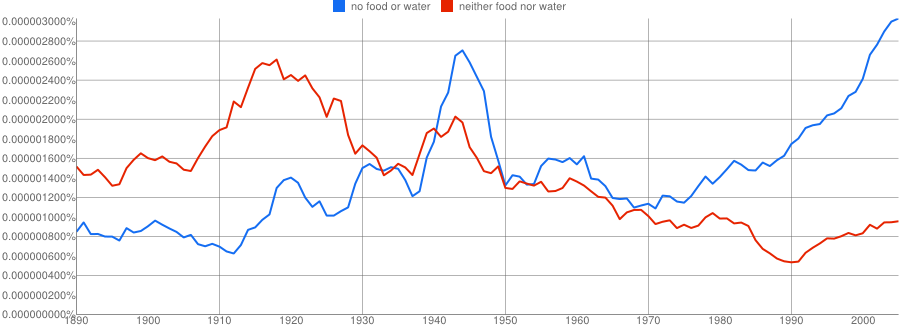I have often seen the following expressions:
[ex.] 1. I have no allergies or any medical issues. 2. John serves a chicken with no sauce or any kind of seasoning.
I suspect that such a use is wrong from a prescriptive grammatical point of view, because "no" modifies "allergies" in (ex.1) and the sentence is split as follows: "I have no allergies" or "I have any medical issues". But this is not what sentence (ex.1) means. (ex.1) means that I have no allergies or (and?) no medical issues.
Probably, I think that (ex.1) is reanalyzed as "I don't have any allergies or any medical issues".
My question is:
(1) Is the use like (ex.) correct (in prescriptive grammatical terms)?
(2) If not, what is the correct expression to tell the expressions like (ex.1) and (ex.2)?
(3) Or is there some grammatical rule where when "no" is used, the word that comes after "or" may be "any".
(4) Given that I am wrong and the use like (ex.) is correct, why is this so?

